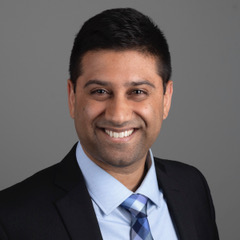Cancer is a complex and multifaceted disease, with its roots entwined in both our environment and our genes. Understanding the role of genetics in cancer can be a powerful tool in the battle against this formidable foe. This post aims to shed light on how our DNA influences cancer risk, the importance of genetic testing, and the implications for treatment and prevention. Whether you’re concerned about your own risk or just curious about the science, read on to grasp the essentials of genetics in cancer.
Unpacking The Genetic Connection
How Genes Influence Cancer Risk: At its core, cancer is caused by genetic mutations that allow cells to grow and divide uncontrollably. Some of these mutations are acquired over a lifetime, due to factors like smoking or sun exposure. However, others are inherited from our parents. These hereditary mutations don’t cause cancer directly but increase the risk of developing the disease.
Familial vs. Hereditary Cancer: It’s crucial to differentiate between familial and hereditary cancer. Familial cancer occurs more often in a family than expected by chance alone, potentially due to genetics, shared environment, or lifestyle factors. Hereditary cancer, on the other hand, is directly caused by specific genetic mutations passed down within a family, representing about 5% to 10% of all cancers.
The Power Of Genetic Testing
Identifying Genetic Risk: Genetic testing can identify mutations associated with an increased risk of certain cancers. This information is invaluable for individuals with a strong family history of cancer, allowing them to make informed decisions about their health.
Implications for Family Members: When a genetic mutation is identified in one family member, other relatives may choose to undergo testing to understand their own cancer risk. This knowledge can lead to proactive measures, such as increased screening or preventive surgeries, to reduce the risk of cancer development.
Considering Genetic Testing? Consult The Experts
Before diving into genetic testing, it’s essential to consult healthcare professionals, including genetic counselors and specialists like Dr sudipta mohanty BOSTON. They can provide guidance on the appropriateness of testing, interpret results, and recommend next steps.
Tailoring Cancer Treatment And Prevention
The Role of Genetics: Understanding the genetic makeup of a patient’s cancer can significantly impact treatment decisions. Targeted therapies, which specifically address genetic mutations in cancer cells, are revolutionizing cancer treatment. Consulting specialists, such as Dr sudipta mohanty BOSTON, can offer insights into the most effective, personalized treatment plans based on a patient’s genetic profile.
The Future of Genetic Research in Cancer: Ongoing research and advancements in genetics promise to uncover new strategies for cancer prevention and treatment. By participating in genetic studies or clinical trials, patients can contribute to this evolving field, potentially benefiting future generations.
The Importance of Ongoing Surveillance: For those with a genetic predisposition to cancer, regular monitoring and screenings become even more critical. Regular check-ups with healthcare providers, including those like Dr sudipta mohanty BOSTON, specializing in cancer genetics, are crucial for early detection and treatment.
Conclusion
The relationship between genetics and cancer is intricate, offering both challenges and opportunities. By embracing genetic testing and personalized medicine, we can harness our genetic information to inform prevention strategies, optimize treatment, and ultimately, save lives. Remember, knowledge is power—understanding your genetic risk can empower you to take control of your health in the face of cancer.











